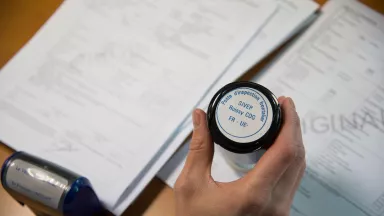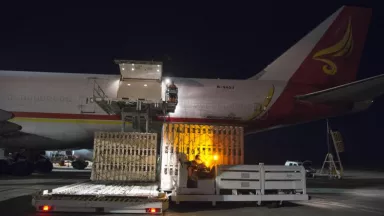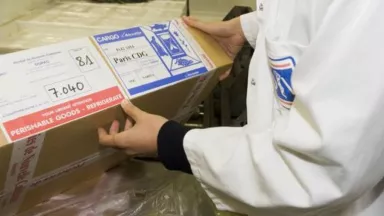How should you carry out your SPS border control procedures (information systems) ?
Partager la page
There are websites available to importers and their representatives for carrying out the procedures for sanitary and phytosanitary import checks, as well as for finding information on the conditions to be met for goods imports.
TRACES :
- TRACES (document edition for products of animal origin, live animals and products of non-animal origin intended for animals)
- TRACES-NT (document edition for plant products and “organic” checks)
TRACES (Trade Control and Expert System) and TRACES-NT (TRACES New Technology) are European Commission information systems. They ensure the traceability of all products of animal origin, live animals, animal feed and plants during their circulation and importation into Europe. Specifically, those systems provide functionalities for certification, pre-notification of consignments prior to arrival at a border post and data entry for the outcomes of sanitary and phytosanitary border checks.
In order to be able to carry out their procedures, importers need to be registered with the relevant competent authority.
When operators wish to transport goods, they must fill in a standard electronic form with all relevant information on the livestock or product carried, their destination and every stage in the journey.
This is the “CHED” (Common Health Entry Document), a form that exists in a range of formats:
- CVED for live animals and products of animal origin
- CED for products of non-animal origin intended for animals
- CHED-PP for plants.
Where animals, products of animal or plant origin from third countries outside the EU are imported or are in transit, the economic operator or person involved in loading the goods (responsible for the consignment) has a duty to notify Part I of the CHED (in TRACES) or CHED-PP (for plants) (in TRACES-NT). The officer at the Border Control Post, acting as the competent authority, will validate CHED Part II (the decision on the consignment) after completion of checks.
All this information is sent to the health authority of the EU country of destination, to the central health authority of the transit country or countries and to all relevant inspection points. It can
then be called up when checks are carried out during the journey and/or at destination. Economic operators registered in the database can also check their accuracy. The system is provided for use free of charge.
IMPADON
The IMPADON website allows operators to refer to sanitary and phytosanitary conditions for importation. Texts are classified thematically, with each topic offering hypertext links to digitised documents.
TRACES (for animals, products of animal origin and non-animal products intended for animals) (click here)
TRACES NT (for plant products and “organic” products) (click here)
IMPADON (click here)
NB: TRACES-NT should be used to process “organic” products of animal and plant origin.
Voir aussi
The SPS inspection procedures that apply to you
14 octobre 2019Sécurité sanitaire des aliments

Where are SPS border controls carried out?
14 octobre 2019Sécurité sanitaire des aliments

Why carry out SPS border controls?
14 octobre 2019Sécurité sanitaire des aliments
